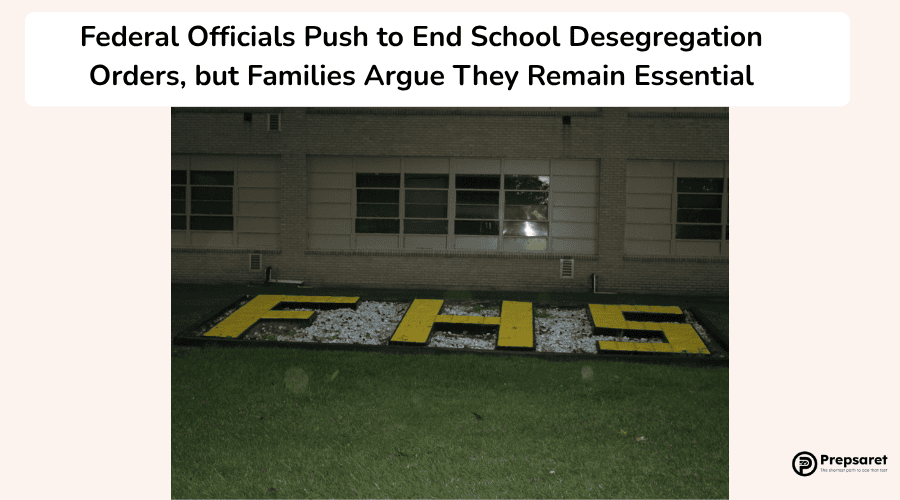Even a casual visit makes the differences between Ferriday High School and Vidalia High School unmistakable.
Ferriday’s aging, worn-down building is secured by barbed wire fencing, while Vidalia High stands a few miles away with pristine facilities, a fresh library, and a bright blue “V” painted on clean orange brick.
The divide isn’t only about the buildings — it reflects the communities they serve. Ferriday High is 90% Black, while Vidalia High is predominantly white at 62%.
Brian Davis, a father from Ferriday, said the divide sends a message: “we’re not supposed to have the finer things,” adding, “It’s almost like our kids don’t deserve it.” Both schools are part of Concordia Parish, which remains under a decades-old court desegregation order.
Yet, momentum is building to end these orders, as some see them as outdated. In a policy shift, the Justice Department recently began easing these court orders, starting with one in Plaquemines Parish.
Harmeet Dhillon, head of the department’s civil rights division, noted other cases would soon “bite the dust.”
Republican Governor Jeff Landry and his attorney general have advocated for lifting these orders, arguing they burden schools unnecessarily. Though intended to be temporary, these court mandates have endured for decades, and stark racial disparities remain in many districts.
Related story: Trump Suspends Entry of International Students at Harvard
A Fight Over the Future of School Equity
Civil rights advocates argue these orders remain crucial tools to combat the lingering effects of segregation, citing cases like Concordia.
Deuel Ross of the NAACP Legal Defense Fund emphasized, “Concordia is one where it’s old, but a lot is happening there.” Ross noted that many of these cases are still active in addressing inequalities.
In 2016, a Justice Department proposal to merge majority white and Black schools in Concordia was rejected, with Vidalia residents fearing such moves would disrupt their communities.
Former Concordia superintendent Paul Nelson, who opposes maintaining the order, remarked, “It’s time to move on. Let’s start looking to build for the future, not looking back to what our grandparents may have gone through.”
Meanwhile, Ferriday coach Derrick Davis sees unity as a potential solution. “It seems to me, if we’d all combine, we can all get what we need,” he said.
Despite growing efforts to dissolve these mandates, over 120 districts in the South, including several in Louisiana, remain under desegregation orders.
Without them, families would have little recourse beyond costly lawsuits. As Brian Davis put it, many Ferriday families are trapped with no means to seek better opportunities, leaving their schools to “slip into darkness.”
Read next: Massachusetts Teen Released from ICE Custody After Traffic Stop Arrest
Getting ready for your GED exam? Kickstart your prep with Prepsaret and practice with real exam-style questions you’ll actually face on test day.

